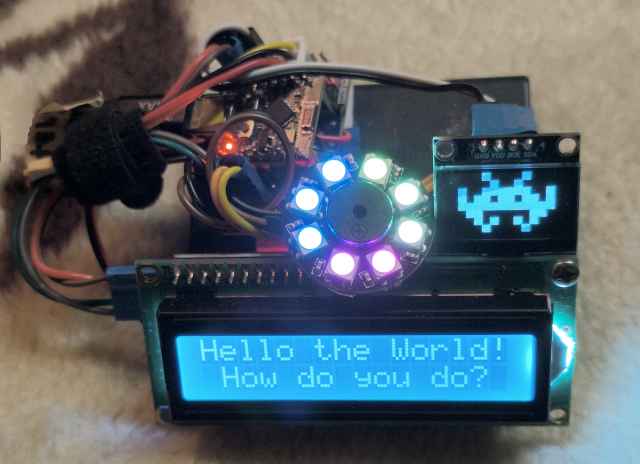UCUq #
To use UCUq with the Wokwi simulator, see the dedicated page.
UCUq is a Python library designed to facilitate the prototyping of assemblies based on microcontrollers (Raspberry Pi Pico (2) W, ESP32, ESP8266…).

Microcontrollers are inexpensive electronic components that are extremely widespread. They are found in household appliances (washing machines, refrigerators, coffee makers…), mobile devices (smartphones, tablets, connected watches…), automobiles (engine management systems, infotainment systems, safety systems (airbags, ABS…)), leisure equipments (drones, game consoles…), industrial equipments…
These microcontrollers are also at the heart of many commercially available electronic and/or robotic assemblies, but you can also easily and inexpensively create your own assemblies from scratch (like the one above).
To support the development of the Internet of things, many of these microcontrollers can be controlled remotely, thanks to Wi-Fi in particular, which is precisely what UCUq facilitates.
Simulators such as Wokwi, with which UCUq is compatible, can be used to familiarize users with microcontrollers and their implementation, without having to purchase the various required components.
In case you don’t have the right equipment, you can use the Wokwi simulator, as described on the dedicated page. This simulator is used for below demonstrations.
- Online demonstrations of UCUq with:
Python Blockly the Atlas toolkit - API reference;
- GitHub repository:
- for the Python library: https://github.com/epeios-q37/ucuq-python,
- for the daemon: https://github.com/epeios-q37/ucuq.